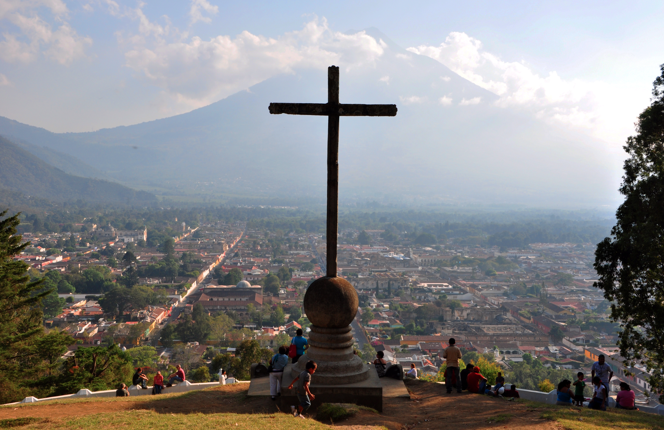Barring any last minute appeals, General (ret) Efraín Ríos Montt will be prosecuted for crimes against humanity during his tenure as de facto President of Guatemala in the early 1980s, the most violent years of the country’s civil war. At a preliminary hearing last Thursday, Judge Patricia Flores declared the 85 year old Ríos Montt fit to stand trial for the murder of some 1,700 civilians, 1,500 rapes of under-aged women and the displacement of 29,000 people.
The decision was historic, but for anyone that was in the courtroom that day – or watched the hearing via the live stream – it should not have come as a surprise. Despite the severity of the charges against him, Ríos Montt barely put up a fight. The retired General refused to speak, saying “I understand what the prosecution is saying and I won’t respond.” His team of lawyers might as well have done the same. Instead, they took a risky approach that may have cost their client any chance of victory.
In the run-up to the hearing, Ríos Montt’s attorneys suggested they would put up a straightforward defense: the former President cannot be guilty because he was not on the battlefield, and did not directly order the army to commit massacres, rapes, and disappearances. This strategy, while risky, would have made sense: blaming the battlefield commanders for the atrocities would have tested the Guatemalan justice system, which has only ever punished material (and not intellectual) authors of human rights violations. The strategy would have put the onus on the prosecution to prove that the abuses were part of a broader state policy controlled through a rigid military chain of command.
Instead, the defense did their opponents’ work for them. In his statement on Ríos Montt’s behalf, defense lawyer Danilo Rodríguez Galvez acknowledged that the government has a policy of systematic human rights violations (including scorched earth tactics, massacres and rapes), but argued that Ríos Montt was not responsible for this plan because it was conceived before he was president, saying, “You can’t ascribe authorship of that long-term political policy to Rios Montt.”
This approach tests the concept of intellectual authorship, but not in a way that favors the accused. It was as if that the defense were trying to convince the judge that being an intellectual author of a state policy means literally writing it.
She didn’t take the bait. Prosecutors presented documentation showing that Ríos Montt had firm control over the military, including telegrams showing he knew about ground operations and video footage of him claiming to have a tight grip on subordinates. This was enough to prove that Ríos Montt carried out a policy of murder and destruction, even if he didn’t come up with the idea in the first place.
Judge Flores gave the prosecution two months to present a formal accusation against Ríos Montt. Until then, his only option is to stall the process through constitutional injunctions (known as amparos) or appeals. But without a new line of defense, these delay tactics would only prolong the inevitable: the trial of a slam dunk case against Ríos Montt.

Reply